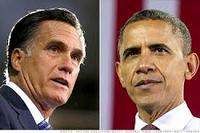-
Technology transfer from U.S. federal laboratories to private entities, other governments
In 2010 the eleven U.S. federal laboratories had more than 18,000 active collaborative relationships with private entities and other government agencies, disclosed more than 4,700 inventions, submitted 1,830 patent applications, and received 1,143 patents
-
-
Morsi searches for way out of Egypt’s political crisis as opposition to power grab intensifies
Last week, Egypt’s president Mohamed Morsi issued a decree which said that no authority could revoke presidential decisions; the decree also bars judges from dissolving the assembly which is now engaged in drawing up a new constitution; the decree authorized the president to take any measures to preserve the revolution, national unity, or safeguard national security; leaders from across the political spectrum charged the decree betrayed the popular revolution which toppled Hosni Mubarak, and turned Morsi into a “new Pharaoh”; some leaders of the secular opposition implied that they would prefer to see the military seize power from the Muslim Brotherhood
-
-
U.S. skies may soon be open to drones
Unmanned drones are cheaper than manned aircraft and can be used in a variety of ways, such as assessing environmental threats and damage from natural disaster, tracking criminals trying to escape on a highway, and assessing wildfires; according to an FAA prediction, 30,000 drones could be flying in the United States in less than twenty years; lawmakers and privacy advocates want the use of these drones more tightly regulated
-
-
New Georgia immigration bill makes state health professionals feel the pain
Starting in January 2012, a Georgia House bill required health employees to prove their citizenship or legal residency when they apply for or renew a professional license; the bill has licensing administrators tied up in knots as understaffed offices cannot keep up with the deluge of new paperwork and increased responsibility
-
-
Jill Kelly’s FBI friend helped launch the investigation, then tipped lawmakers
Jill Kelly, a Petraeus family friend, was warned in a series of anonymous e-mails not to get too close to CIA director David Petraeus; Kelly contacted a friend who worked in the FBI Tampa office, and he persuaded the agency cyber squad to investigate; in late October, fearing that FBI director Robert Muller would sweep the investigation’s results under the rug, he contacted Rep. David Reichert (R-Washington), who, in turn, alerted the majority whip, Rep. Eric Cantor (R-Virginia); the Tampa agent is now under investigation by the Office of Professional Responsibility, the internal-affairs arm of the FBI
-
-
Supreme Court to hear police DNA-collection case
The United States Supreme Court last week granted certiorari in Maryland v. King; in the case, Maryland law enforcement stands to lose the right to require a DNA collection as part of booking procedures for certain felony crimes; a similar law was passed by Congress in 2004 for federal arrests, and twenty-four other state legislatures have also passed such laws
-
-
DREAM Act could generate billions for U.S. economy
A new study estimates that passing the DREAM Act would contribute $329 billion to the U.S. economy by 2030, or $18 billion a year; under the act, illegal immigrants would be able to go to school, work legally, obtain professional licenses, and enjoy other benefits, which will see them earn more, pay more in taxes, and consume more goods and services
-
-
Administrations temporarily waives some immigration measures in wake of Hurricane Sandy
The Obama administration has waived immigration laws for illegal immigrants now in the United States, saying that the immigrants’ ability to maintain their lawful status or collect benefits has been effected by Hurricane Sandy; this measure will provide relief for immigrants, but some people are not happy with it
-
-
Obama, Romney differ on major homeland security issues

Tomorrow, Tuesday 6 November, American voters will choose between Barack Obama and Mitt Romney as the next president of the United States; the state of the U.S. economy and the best ways to reduce unemployment and increase the pace of economic growth were at the center of the campaign, leaving little room for other issues. Homeland security issues, in particular, played little, if any, role in the campaign or in the three debates between the presidential candidates and the debate between the vice-presidential candidates; still, if we examine the policy proposals each candidate has made, and also examine the details of policies posted on his Web sites, the differences between the candidates’ approaches on three major homeland security issues – immigration, cybersecurity, and infrastructure – are considerable
-
-
Sen. Rockefeller asks Fortune 500 CEOs for cybersecurity best practices

Last month, Senator Jay Rockefeller (D-West Virginia) sent a letter to the CEOs of fortune 500 companies asking them what cybersecurity practices they have adopted, how these practices were adopted, who developed them, and when they were developed; many saw Rockefeller’s letter as an admission that the Obama administration does not have a basis for trying to impose cybersecurity practices on the private sector through the Cybersecurity Act of 2012, now stalled in Congress
-
-
States may join feds in regulating infrastructure cybersecurity
Dealing with cybersecurity issues relating to U.S. inmfrastructure has largely been a federal responsibility, carried out through the North American Electric Reliability Corporation Critical Infrastructure Requirements (NERC-CIP)’ the limitations of these requirements have led state regulators to consider increasing state role in infrastructure protection
-
-
U.S. keeps collecting money for a nuclear waste repository – but has no plans to build one
Illinois utility customers have paid the U.S government $1.9 billion to store spent nuclear fuel from nuclear plants in the state in a permanent national nuclear waste repository; in the last thirty years, the U.S. government has collected $30 billion from utilities toward this permanent storage, and it keeps collecting $750 million a year; trouble is, in February 2009 the Obama administration decided to “defund” the Yucca Mountain nuclear repository project, and the U.S. government no longer has active plans for a centralized nuclear waste storage facility
-
-
Environmentalists concerned about earthquakes tests near California nuclear plant
The Pacific Gas and Electric Company (PG&E) wants to use air guns to emit strong sound waves into a large near-shore area which includes parts of marine reserves; the purpose: creating three dimensional maps of fault zones near its Diablo Canyon nuclear plant in California; the plans have federal and state officials concerned about marine life and public safety
-
-
The administration set to issue a cybersecurity executive order

President Obama issued a proclamation the other day making October National Cyber Security Awareness month. The administration’s efforts to push a cybersecurity bill through Congress, however, have so far failed, so the administration is opting for a solution other administrations have adopted in the face of a recalcitrant Congress: executive order
-
-
Critics: U.S. not doing enough to combat domestic terrorism

The effectiveness of the U.S. campaign against al Qaeda and its affiliates may have reduced the threat of foreign terrorists launching attacks on targets in the United States, but the threat of terrorism the United States is facing has not been reduced owing to the rise in domestic terrorism
-
- All
- Regional
- Water
- Biometrics
- Borders/Immig
- Business
- Cybersecurity
- Detection
- Disasters
- Government
- Infrastructure
- International
- Public health
- Public Safety
- Communication interoperabillity
- Emergency services
- Emergency medical services
- Fire
- First response
- IEDs
- Law Enforcement
- Law Enforcement Technology
- Military technology
- Nonlethal weapons
- Nuclear weapons
- Personal protection equipment
- Police
- Notification /alert systems
- Situational awareness
- Weapons systems
- Sci-Tech
- Sector Reports
- Surveillance
- Transportation
Advertising & Marketing: advertise@newswirepubs.com
Editorial: editor@newswirepubs.com
General: info@newswirepubs.com
2010-2011 © News Wire Publications, LLC News Wire Publications, LLC
220 Old Country Road | Suite 200 | Mineola | New York | 11501
Permissions and Policies
Editorial: editor@newswirepubs.com
General: info@newswirepubs.com
2010-2011 © News Wire Publications, LLC News Wire Publications, LLC
220 Old Country Road | Suite 200 | Mineola | New York | 11501
Permissions and Policies
